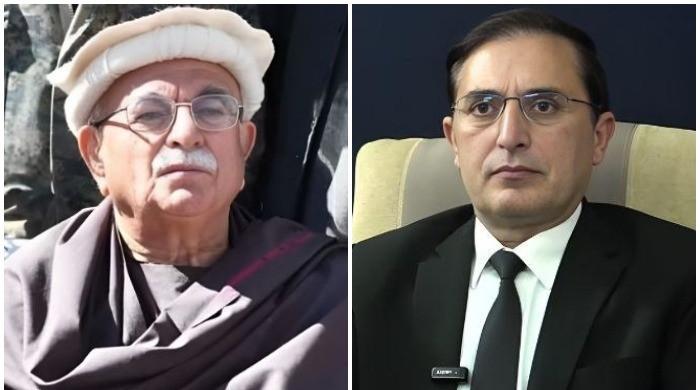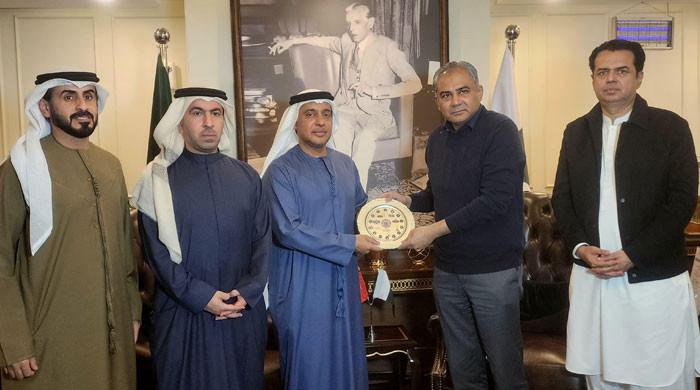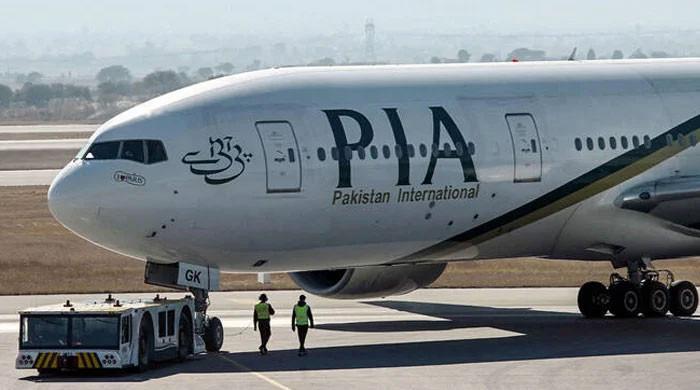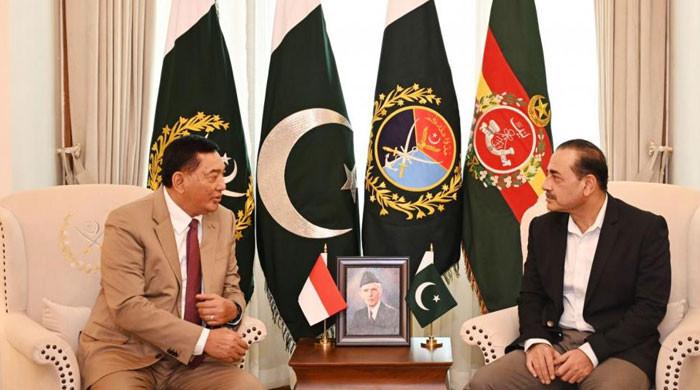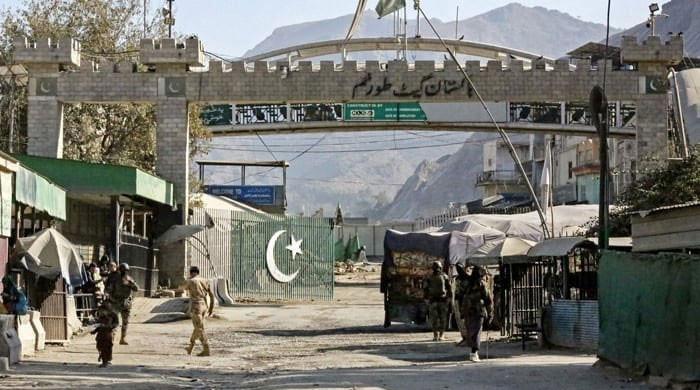India fails to engage ICJ with any 'solid argument' in Jadhav case
Four-day hearing of the case concluded Thursday
February 22, 2019
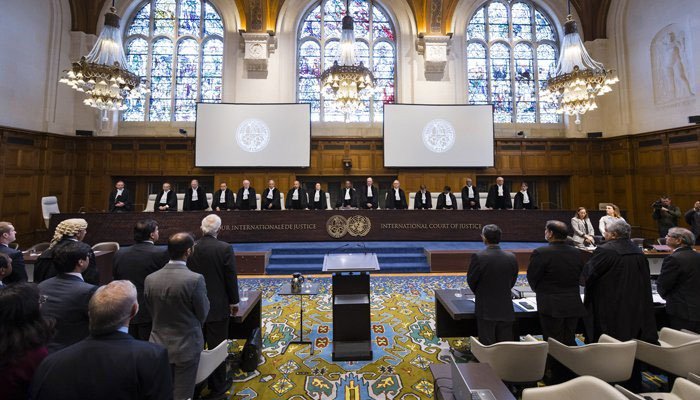
ISLAMABAD: The legal teams of Pakistan and India have concluded their arguments at the International Court of Justice (ICJ) in the case pertaining to Indian spy Kulbhushan Jadhav.
The four-day hearing of the case at the United Nations court in The Hague opened on Monday and concluded Thursday with the verdict expected to be delivered in the summer this year.
India's legal team which went first on Monday, told the court that Pakistan should have refrained from using words such as “ridiculous” and “nonsense” in response to the approach adopted by New Delhi. However, Pakistan’s counsel Khawar Qureshi argued “these words were, unfortunately, required and were given meaning by the context created by India – not Pakistan". "India could not stop itself from exaggeration even on this simple issue. As for its own reply submissions, Pakistan has no need to add padding. The facts speak loud and clear enough by themselves. India’s attempt to drown out the truth with background noise simply will not work,” the Pakistan counsel upheld.
Qureshi further argued that Pakistan intends to be brief and succinct in its reply. That is because India has made no real let alone convincing arguments, he pleaded before the ICJ.
Regarding the kidnapping claim made by Indian authorities, Pakistan’s lead counsel argued, “By failing to avail itself of an opportunity before this court to explain what steps it took to seek an investigation within Iran to support its kidnap fiction, India nevertheless expects the court to accept it has a reasonable basis to advance this assertion. It advanced no evidence, merely bare unsupported and convenient speculation.”
Indeed, India’s failure to identify any attempt by New Delhi to engage with the Iranian authorities in respect of its “kidnap fiction” is left completely unexplained – because providing an explanation would expose the fiction, the arguing counsel stated.
Pakistan’s reference to three independent Indian journalists was to illustrate that their independent investigations, at the very least, corroborated commander Jadhav’s own confession of being a RAW agent. India’s response, namely to cling steadfastly to the position that words mean what India wants them to mean, was to assert that Pakistan had used the words “clinching and convincing” as well as “unimpeachable” to describe the evident value of the investigations made by the journalists, Qureshi added.
Pakistan’s lawyer said India simply cannot continue to suggest that there is not a “scintilla of evidence” other than Commander Jadhav’s confession to suggest that he was an Indian agent. Indeed, India itself in its own pleading had adopted a blatantly contradictory position when it stated, “what was the other evidence (apart from the patently contrived confession and forged passport) from which it could be established that Jadhav was engaging in acts of spying and terrorism” (emphasis added), Qureshi argued.
Is it permissible for a party to “chop and change” its case without consequence, asked Qureshi. “India has also asserted that there was no need to address the passport issue as this had no legal consequence and Pakistan’s submissions were mere rhetoric.
Submissions which (as the court was shown) were based upon clear, compelling, uncontradictory expert evidence, it was rhetoric that has been used throughout by India alone by way of hollow response on this issue, Qureshi argued. The suggestion that India’s conduct in this regard has no legal consequence, if accepted, would allow a serious transgression of the duty of good faith never mind fundamental international obligations to go unchecked, he added. Is the approach of India as it suggests really to “hammer the facts, hammer the law”, asked Pakistan's counsel. Pakistan submits yes, insofar as India seeks to twist the facts and break the law to suit its purpose. India’s conduct cannot go unchecked – it is brazenly trampling on red lines.
Giving a reference of a secret report, Qureshi said, “Having sought to adduce a document purportedly dated December 26, 2017 which formed a seven-page annex (headed “SECRET”) to its reply served on April 17, 2018, and underpinned approximately 15% of the written pleading, when repeatedly pushed by Pakistan, India rebuffed all requests by Pakistan to check the accuracy of the Reply after it was filed.”
However, yet again, he further argued that when Pakistan made it clear that it intended to expose the manufactured nature of the document, India sought to effect a correction to the date of the “Secret Report” on January 23, 2019 (with reference to a letter purportedly dated August 8, 2018) (presumably as a “slip/error” to the date of the said document), without any regard to Article 52(3) of the Rules of Court (1978) which provides for correction only “with consent or leave of the President”. This is consistent with India’s approach. It appears to believe that it has no duty to ensure accuracy in its pleadings or to effect timely corrections, and that there are no consequence for its blatant inaccuracies otherwise.
Ultimately, India now contends that even this “Report” is irrelevant, Qureshi added. In his concluding arguments, Qureshi said, Pakistan was driven to make trenchant observations in its rejoinder in the face of India’s brazen distortion of the 2008 agreement and the doctoring of the military experts’ report. Even as at the commencement of the oral phase of these proceedings, Pakistan expected India to show some respect to the Court, if not Pakistan, and if not the independent experts.
Pakistan was (unfortunately) compelled to make trenchant oral submissions in this context. India’s position is as devoid of legal merit now as it was on May 8, 2017 if not even more so in light of its brazen continuous course. India’s claim for relief remains as far fetched now as it was then, Qureshi concluded.




